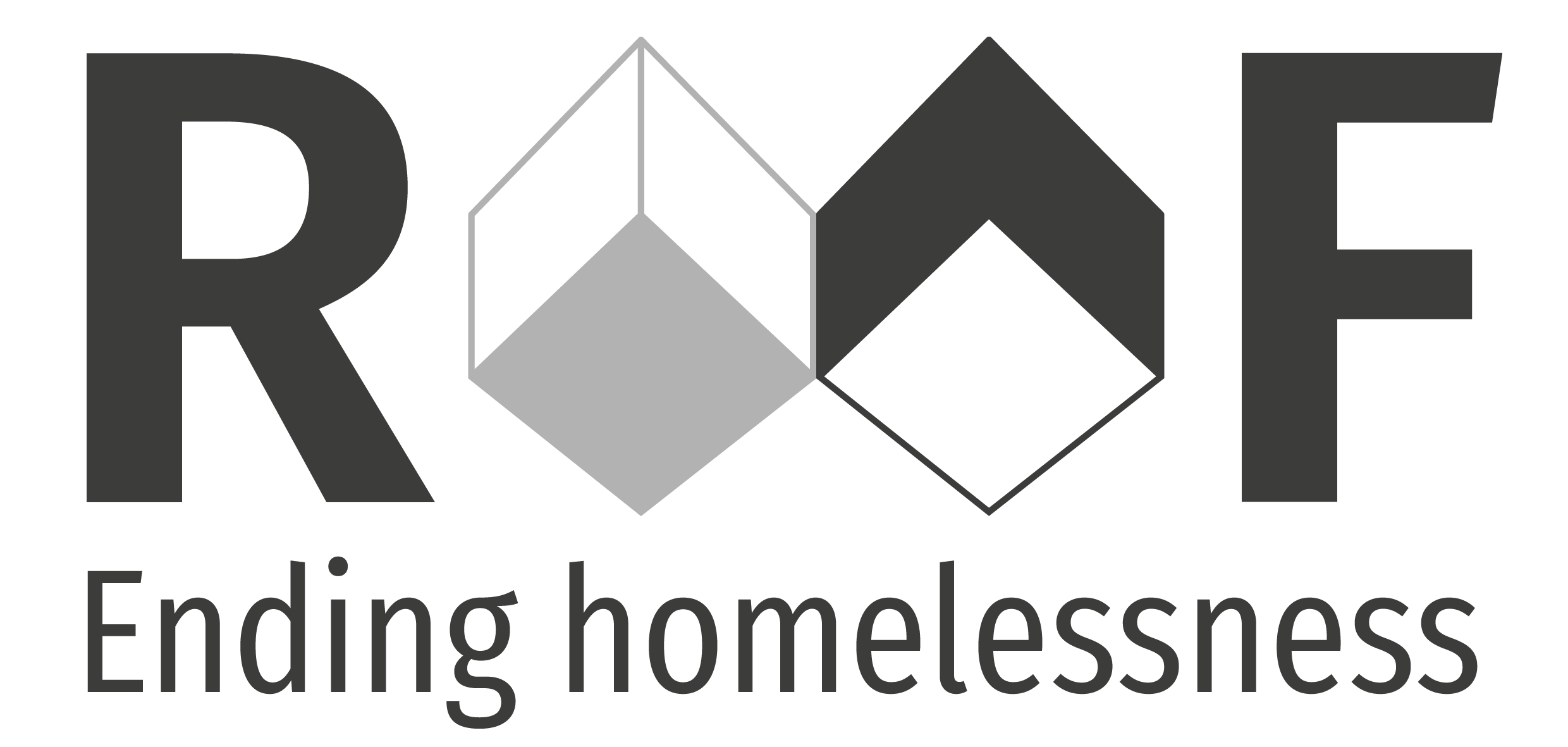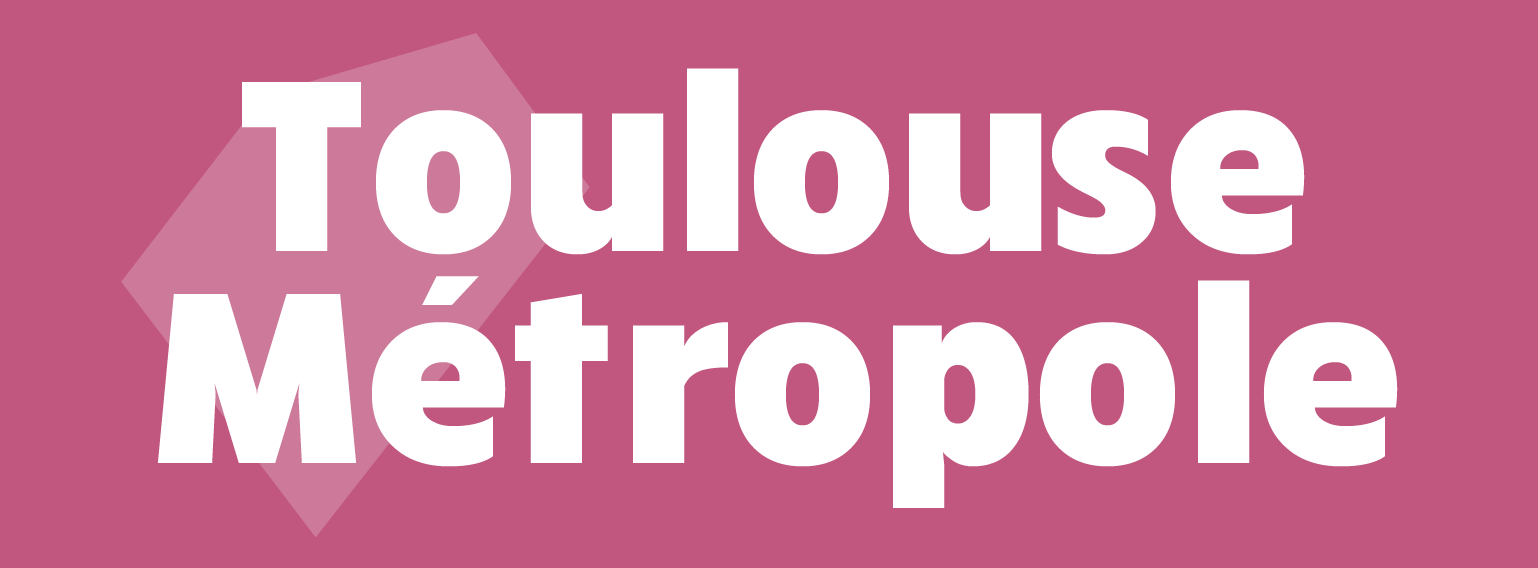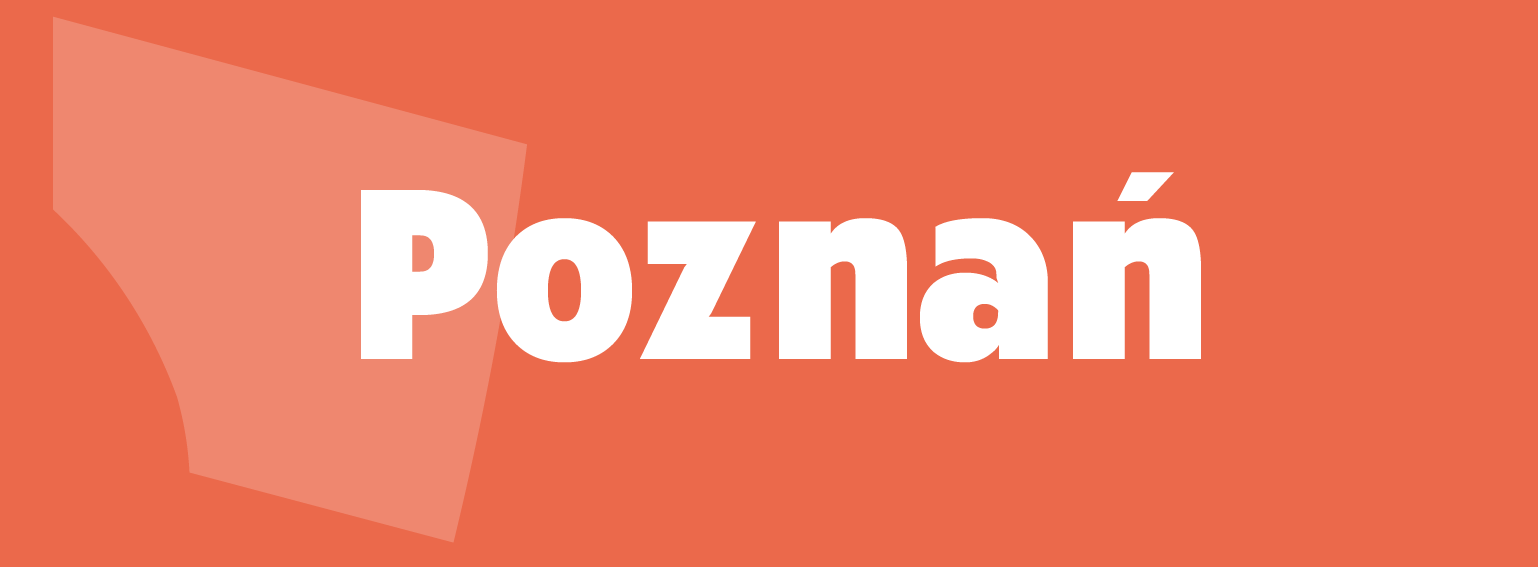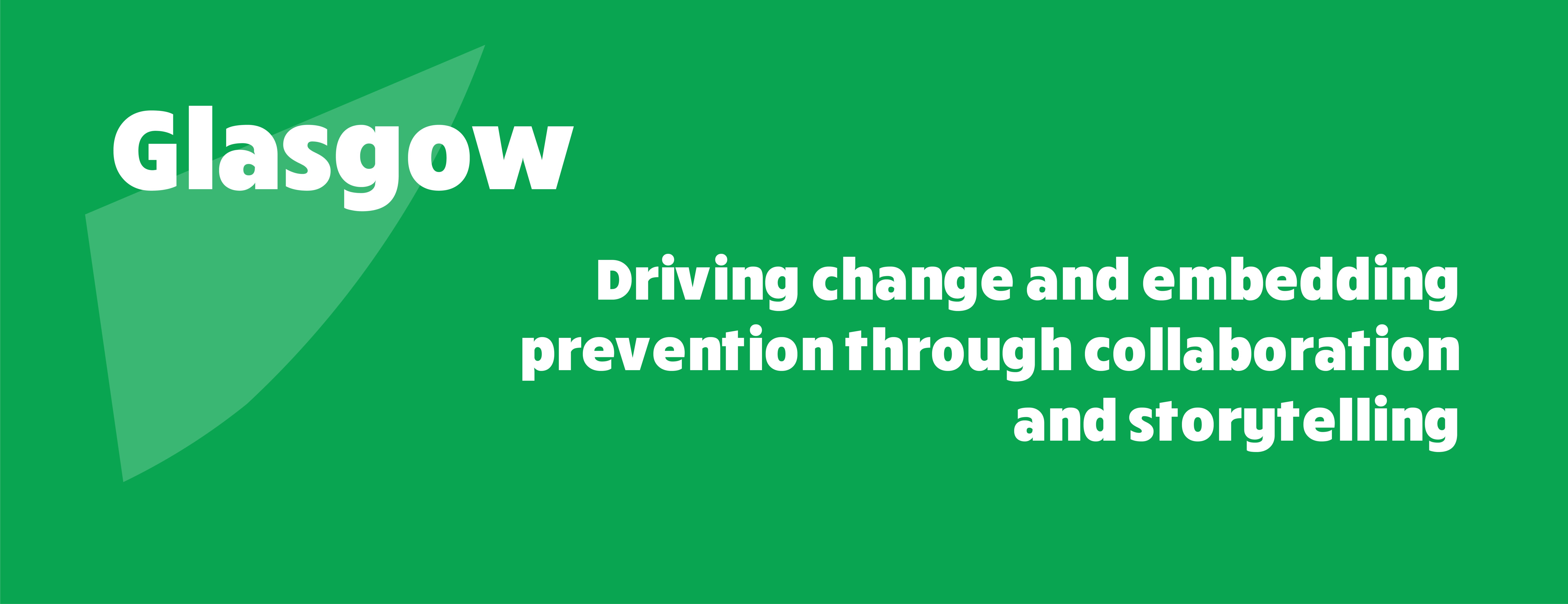
"We always find it beneficial to remove ourselves from the day to day and try more creative thinking that transnational working can bring".
City background
Glasgow, a post-industrial city, is the most diverse city in Scotland, with a growing population of 626,400 inhabitants. Although the development across different service sectors and the formation of the city’s four universities have changed the face of the local economy over the past 20 years, Glasgow is still deeply entrenched in poverty. With 26% of the city’s children living in relative poverty and 6,000 inhabitants being homeless, the link between poverty and homelessness cannot be ignored. While the city accommodates 106,000 social housing units, which contain 29% of the housing market, the ambition remains to implement a Housing-Led approach that tackles and ends homelessness.
Faced challenges and strategies
While the city’s council along with cross-sector collaborators have a duty to provide support to the homeless and at-risk population, the lack of proper infrastructure around affordable housing and the homeless with complex needs stay as some of the main challenges that need addressing. In recent years and thanks to the Rapid Rehousing Transition Plan (RRTP), the city has made significant progress in addressing homelessness by emphasising co-designing solutions with those experiencing it. Moreover, setting objectives that prioritise prevention and the establishment of the Glasgow Alliance to End Homelessness, have been ways of moving away from traditional methods towards more collaborative approaches.
Activities during the ROOF network project
To deliver Housing First (HF) and support local authorities in the process of scaling up, a cross-sectoral partnership leading five pathfinders has been formed, resulting in an 81% success rate up to August 2021. In addition, using storytelling as a means to demonstrate impact and drive change, collaborating with the Centre for Civic Innovation (CCI) from the early phases of the project while keeping the ULG small and focused, has led to a unique approach. Moreover, the Small Scale Action (SSA) focus is on the factors driving homelessness to spot the signs of at-risk populations and intervene in the early stages to minimise it. This leads to the Integrated Action Plan (IAP) of Glasgow starting with a story. To demonstrate that data do not always show the full story, the city indicates the need to invest in local communities, build local expertise and collaborations, and use storytelling as means to tackle homelessness before it begins.build local expertise and collaborations, and use storytelling as means to tackle homelessness before it begins.
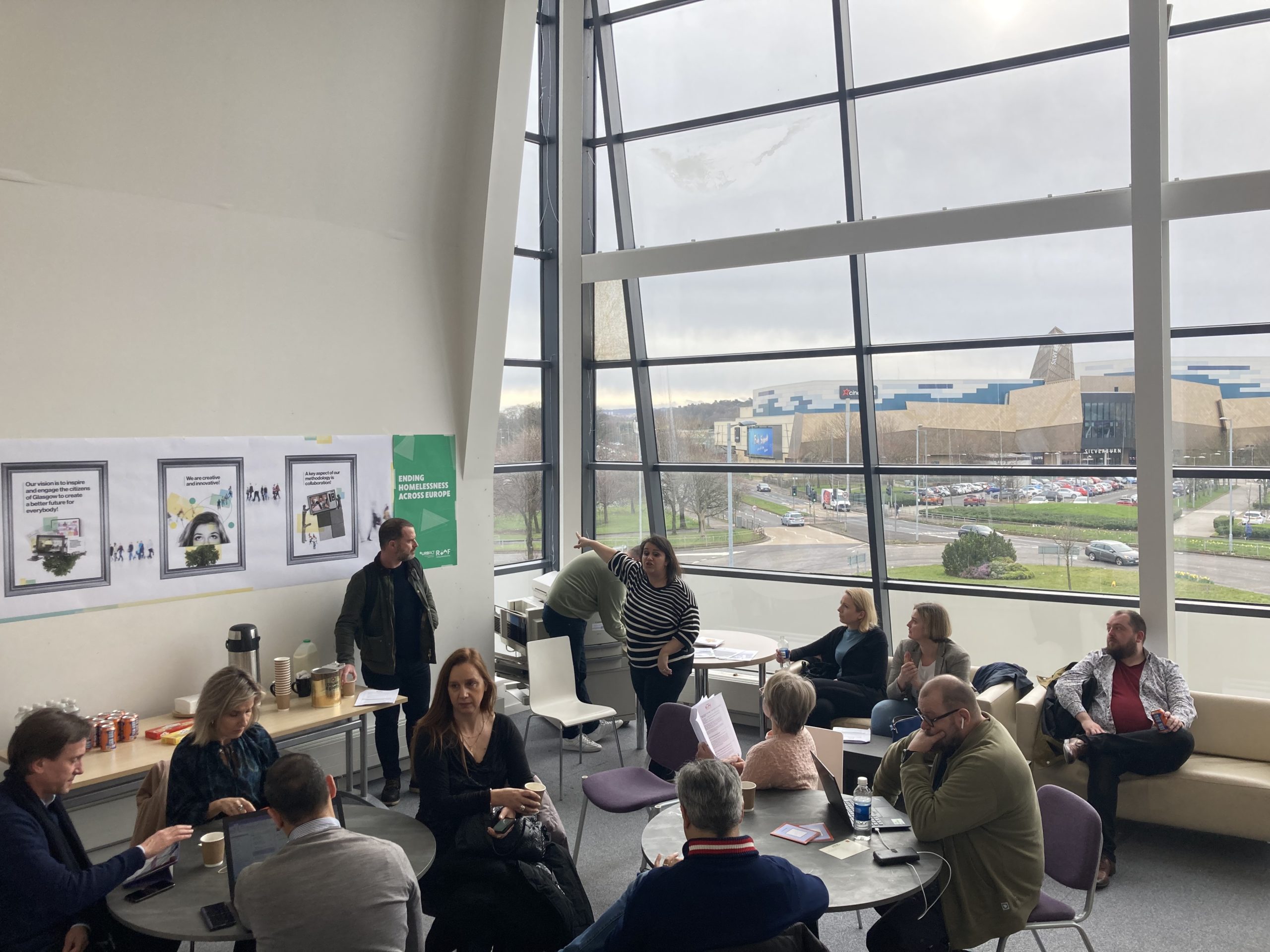
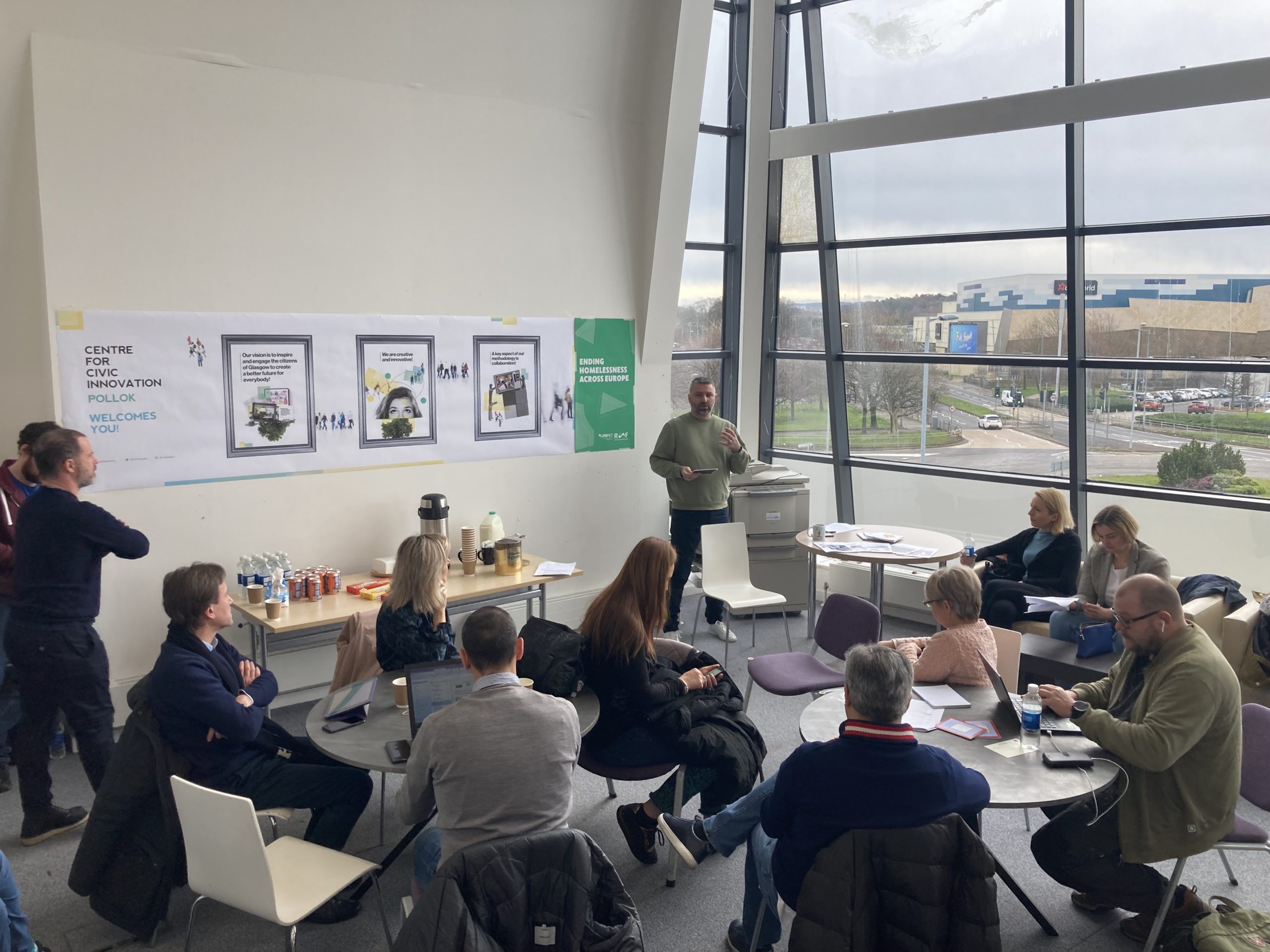
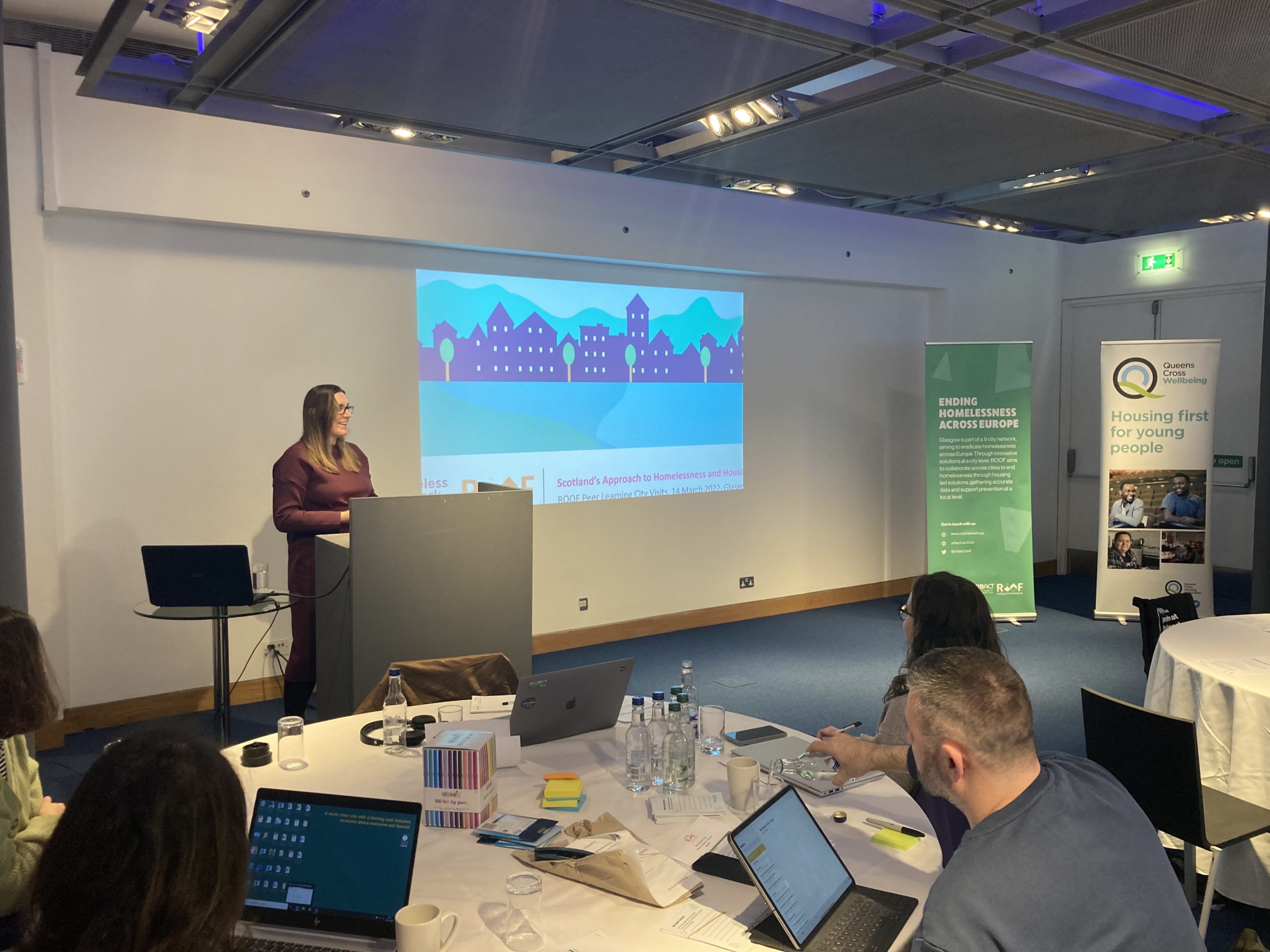
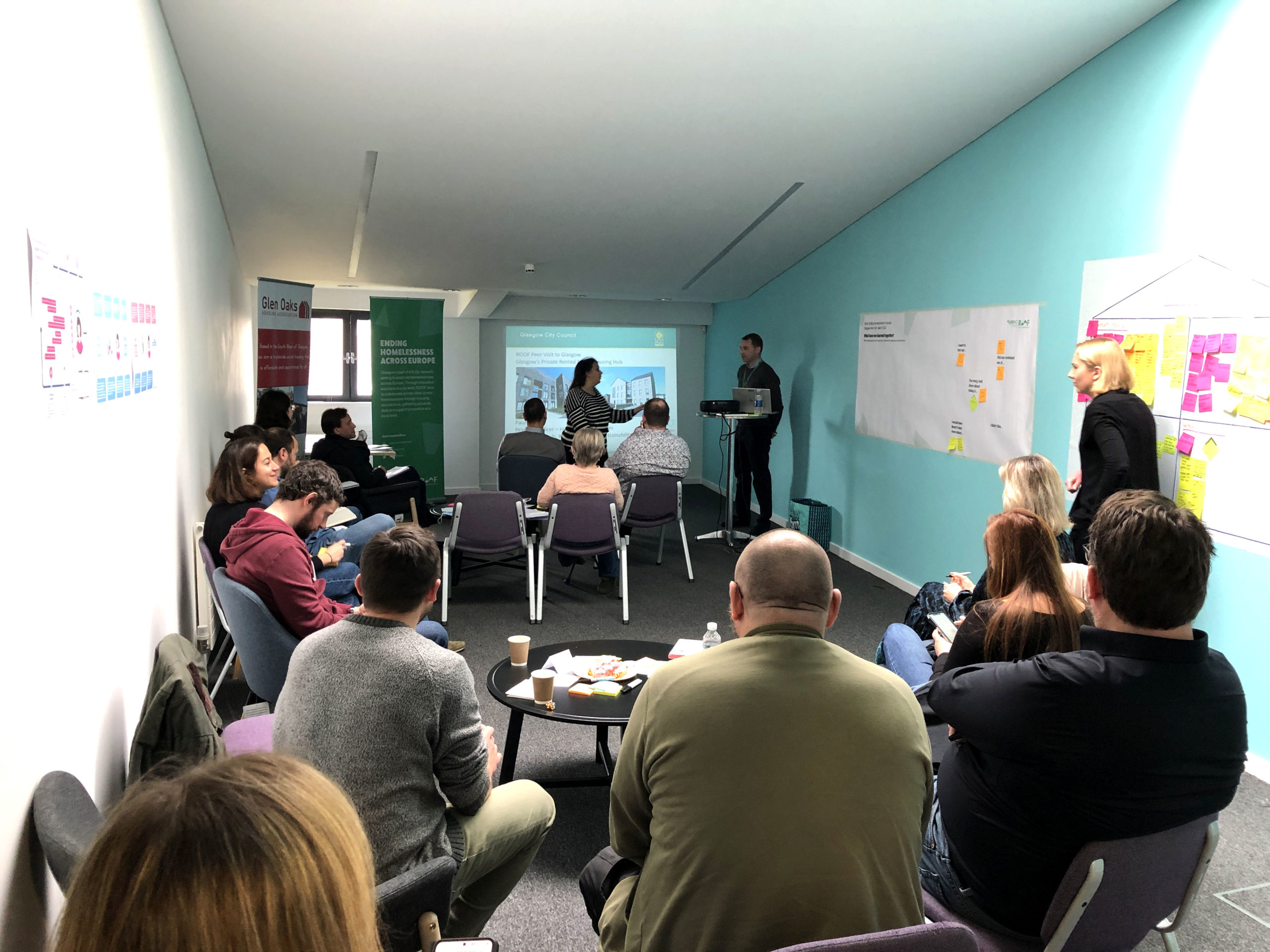

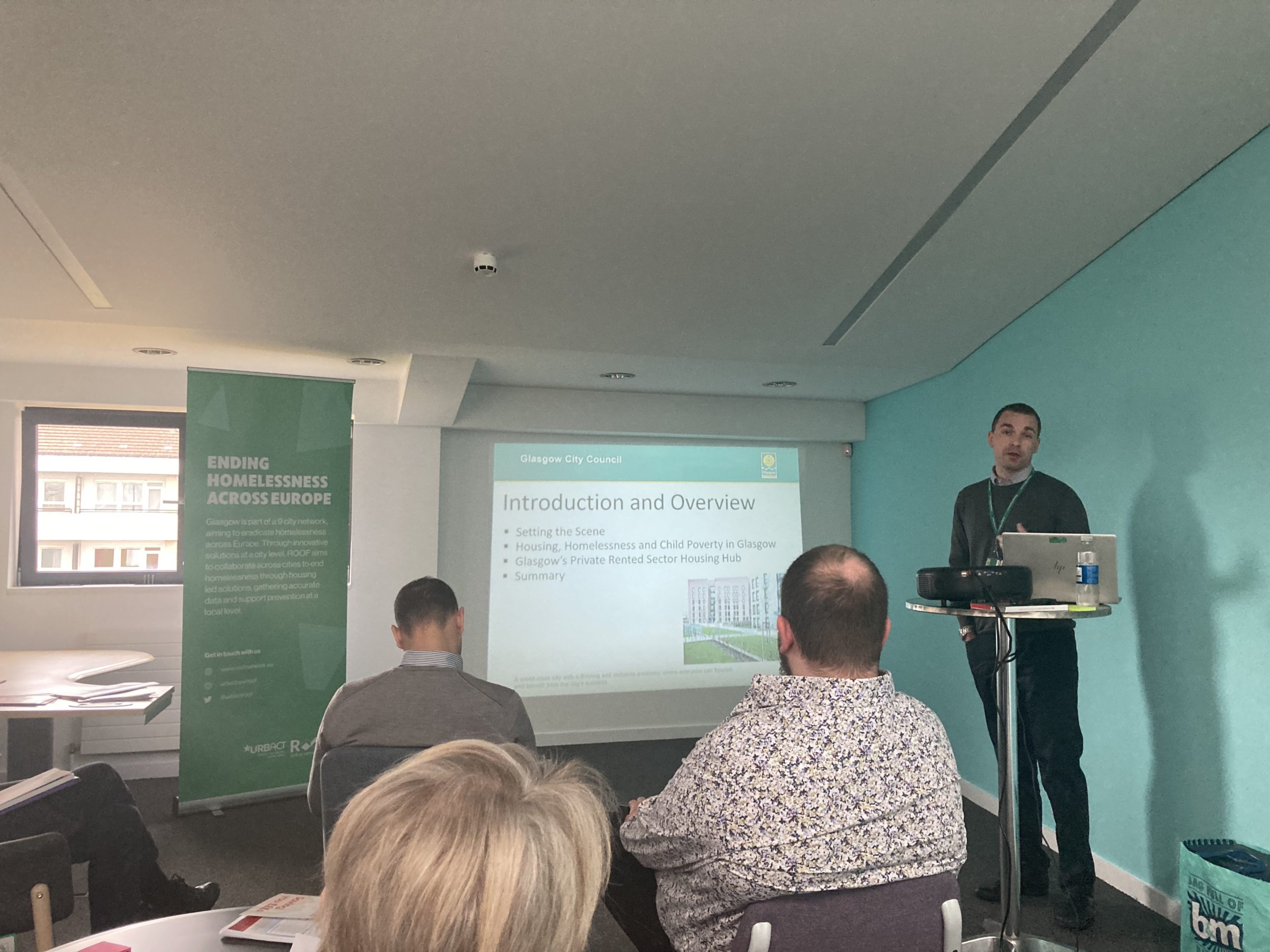
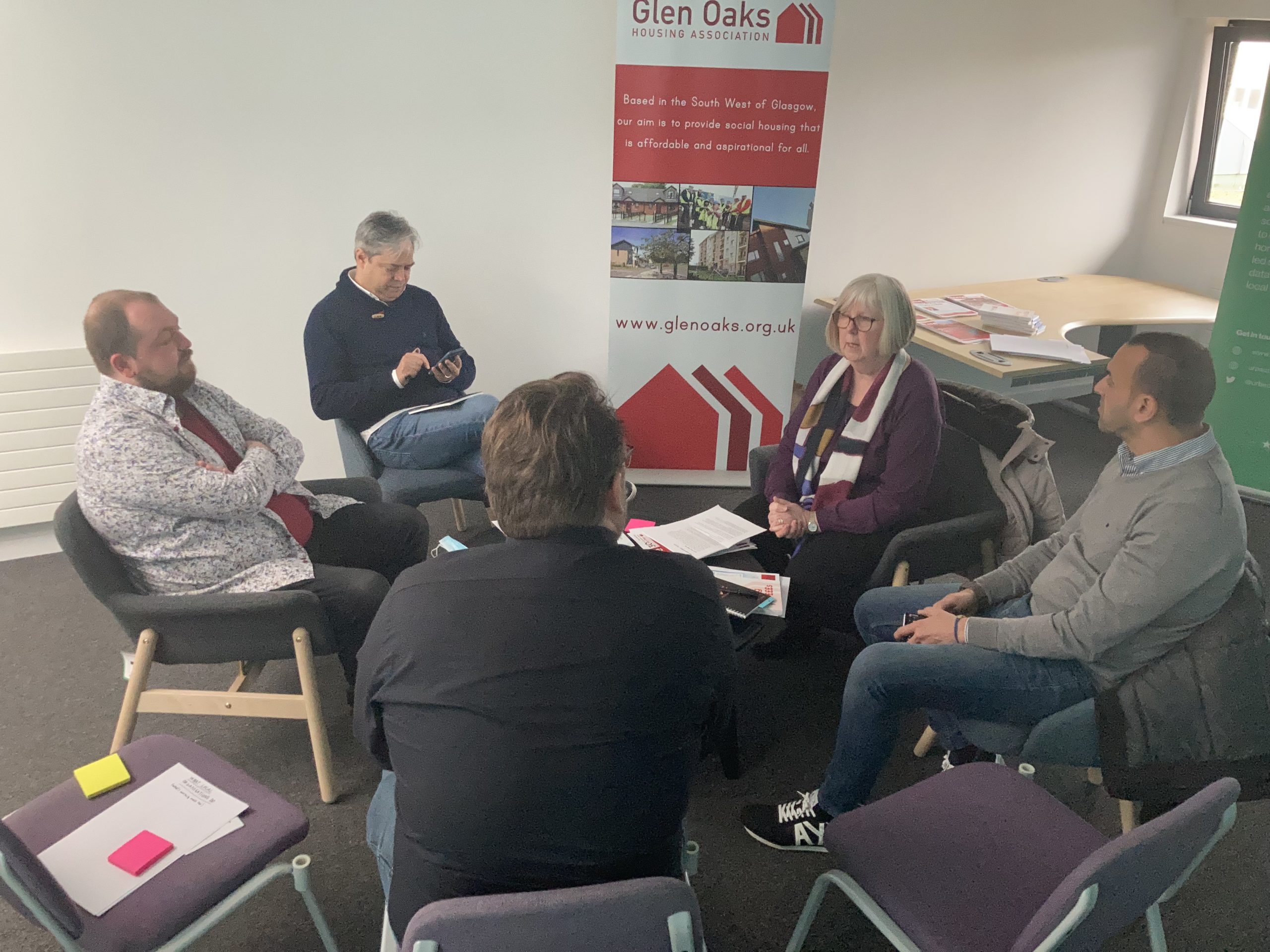
"Our agility to move online during the pandemic, the opportunity to work with new cities that we have not worked with before, to hear lived experience testimonies and also within Glasgow, to link more with our Centre for Civic Innovation and collaborate with them. Their skills and expertise have brought a new dimension to our focus on homelessness. The Small Scale Action also gave us creative insights into homelessness in our neighbourhoods and to capacity build with local stakeholders, building trust and more collaborative opportunities".
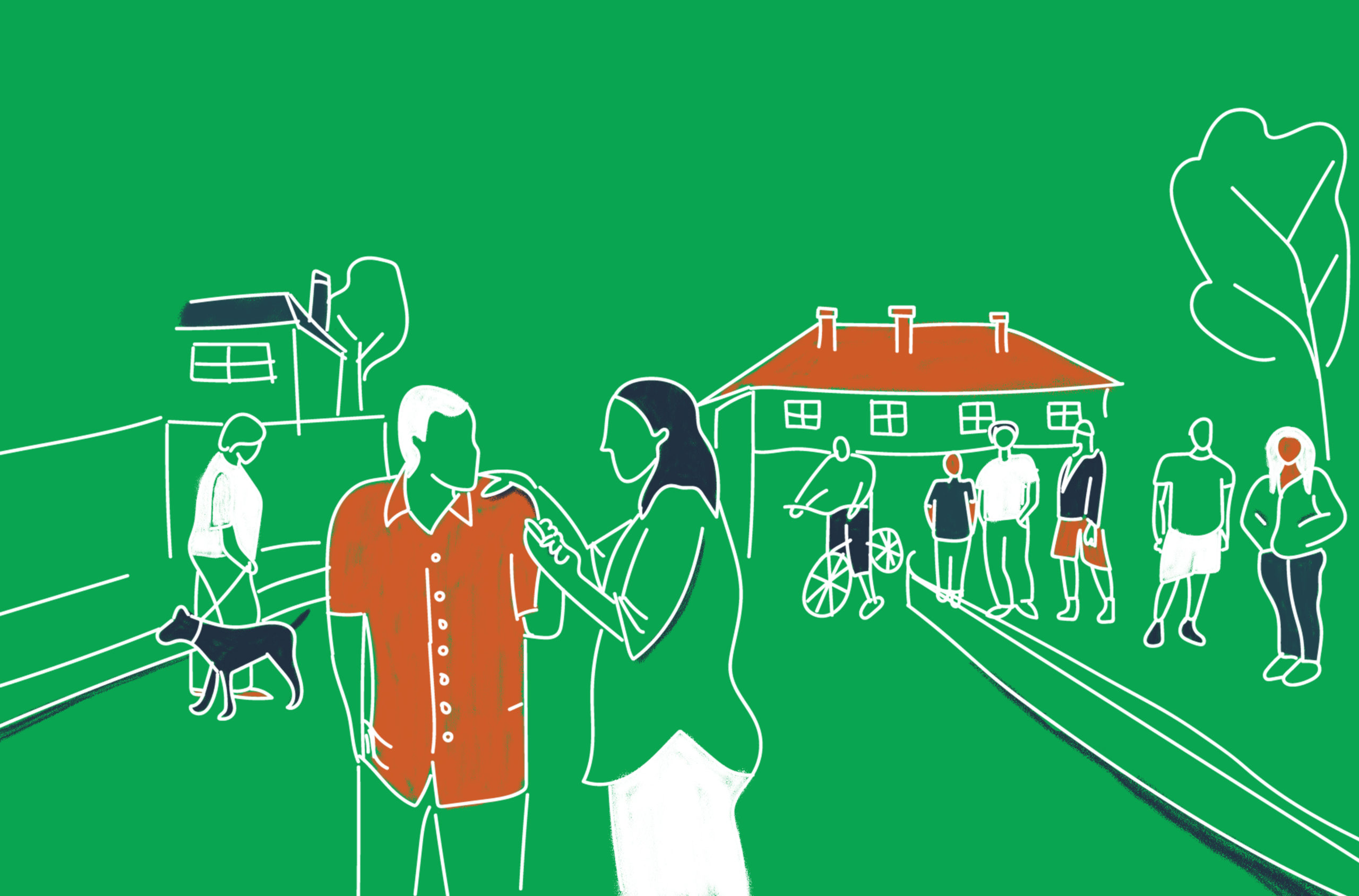
Small Scale Action
Closer to home - a place-based approach to ending homelessness
An established neighbourhood wide training initiative to increase the capacity of multiple stakeholders, practitioners and community members to identify what drives homelessness and act on early prevention strategies.
Braga recognizes in lack of employment one of the most influencing factors of not being able to leave the shelter and find new autonomy. Today, no project or service works with homeless people to provide training for the work field, however there is a successful project for people with disabilities. While the target group has different needs, there is a general agreement that a similar program could work for some people living in the shelter today. The SSA will therefore build on the experience of the “skills academy”. They will begin a program called “house of skills” (without a house in the beginning) to test the method before going into big investments. A website will be put in place to communicate the activities and a dedicated project manager will be assigned to the project. The idea is to test whether people will be able to find a job and if companies will be willing to join and offer the opportunity for training and internship. It will be interesting to observe how this changes the reality of the homeless person in the short and long term, as well as the change in mindset of job providers.
"We are hoping to take a more holistic approach to prevention, building it in to our ambitions to create a community wealth building strategy for the city, engage and activate citizen participation and create more welcoming spaces and places."
Glasgow's Integrated Action Plan
Despite the non-existent public housing stock in Glasgow and the city’s growing private sector rental market, the presence of the Centre for Civic Innovation from the early stages of the project created a perfect opportunity for the city to look at homelessness in a new way as well as supporting the Rapid Rehousing Transition Plans objective that prioritised prevention.
The URBACT Local Group (ULG) group, small and focused on one neighbourhood in the city, has tested new ideas, fostered collaboration and explored solutions while collaborating with the wider city structures and spearheading the project at a local level.

To further the development of its IAP and expand local work, Glasgow plans on a series of design workshops during 2022. Moreover, the future objectives of the city function on a local level are focusing on identifying gaps and barriers in the homeless support journey, supporting, developing and strengthening the local homelessness prevention ecosystem, and improving communication and collaboration to prevent homelessness. These objectives have led to multiple actions which briefly contain:
Data
•Mapping current info sharing/collaboration systems in homelessness prevention locally
•Identifying, articulating, and sharing the local indicators of homelessness risk
•Co-designing a local information/data/communication sharing joint case management /system
•Gathering more data on auto entitlement to benefits
•Continuing to monitor the impact of welfare reform
•Building a bank of stories from homeless people/develop a local campaign to broadcast the stories
•Creating a network of solvers sharing experiences, info, skills
Housing
•Working with the new Rapid Rehousing Transition Plan Housing Option Officers to mainstream the housing options services
•Identifying, articulating and sharing the local indicators of homelessness risk
Support
•Understanding how people want to access information and help
•Co-designing actions with City Food Plan to ensure food poverty is mitigated and recognized
•Co-Designing training to build skills and knowledge in homelessness prevention
•Facilitating a buddy system between families and individuals
•Ensuring people with lived experience of homelessness to be on all decision-making boards
Prevention
•Working with policy leads on Community Wealth Building Agenda to embed homelessness prevention in policy development
Focus on Glasgow (UK): Report of a peer visit
After two years of online video calls and back and forth emailing in the wake of the pandemic, Glasgow welcomed representatives from across the nine ROOF cities for a peer learning visit. On the 14th and 15th March, Glasgow set out to share with our visitors how the city is working to end homelessness across the city now, the practices we have in place to prevent homelessness as well as sharing our plan to eradicate homelessness from society...
